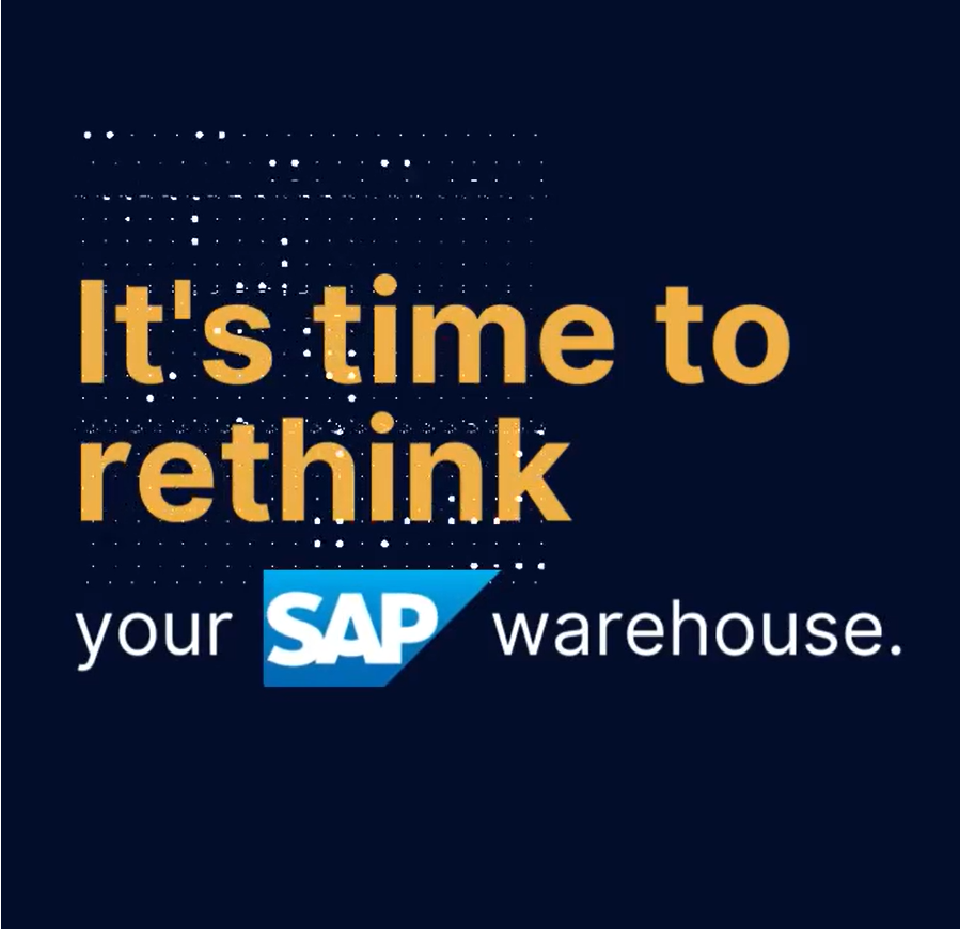What to Look for in a Yard Management System
- Inventory/Warehouse
- Inventory Management Software
- YMS

Is your warehouse yard a constant headache? Do you struggle with inefficient processes, misplaced trailers, and missed appointments? A Yard Management System (YMS) can help by bringing much-needed visibility and order to your yard.
It acts as a central hub for managing all yard activities, from gate control and asset tracking to dock management and driver communication. By automating processes and streamlining workflows, a YMS can significantly improve productivity and minimize costly bottlenecks. But choosing the right YMS requires careful consideration of various factors.
This post guides you through the essential features to evaluate in a YMS. We’ll cover:
- What a YMS is and how it works
- Common yard management problems and their solutions
- Key features to consider, from real-time tracking to robust reporting
- Integration requirements and scalability
- User experience, including mobile access and support
- Analytics and reporting for data-driven decisions
After reading this post, you’ll know what to look for in a YMS, so you can choose a solution that streamlines your yard and strengthens your supply chain.

4 Ways RFgen Mobile Apps Help You Get More Out of Oracle SCM Cloud
READ NOW »Understanding Yard Management Systems
A Yard Management System helps you control your warehouse yard. It uses digital tools to track trailers, coordinate dock assignments, and manage gate activity, leading to significant cost savings through improved operational metrics. By integrating these components, a YMS streamlines how assets move throughout your yard.
For businesses with expanding operations and increasing customer demands, a YMS is essential for maintaining efficiency and meeting delivery expectations. Efficiently managing your yard is just as crucial as managing your warehouse, and a YMS provides the tools to do so effectively.
Core Functions and Components
A YMS gives you end-to-end visibility through five key components, emphasizing the importance of yard management processes:
- Gate Control: Automates check-in/check-out to monitor entries and exits.
- Asset Tracking: Monitors the real-time location of trailers, containers, and yard equipment. This is especially important in large outdoor storage areas, where misplaced assets can cause delays and impact productivity. Leveraging geolocation technology, like GPS, allows for precise tracking of assets in real-time, even in expansive outdoor yards.
- Dock Management: Schedules and coordinates loading dock activities and assignments.
- Yard Driver Management: Optimizes tasks and routes for yard jockeys. With geolocation capabilities, yard drivers can be directed to the precise location of trailers, minimizing search time and improving efficiency.
- Reporting & Analytics: Collects data and provides insights into yard performance.
Common Yard Management Challenges
Many organizations face these yard management hurdles:
- Limited trailer visibility makes asset tracking inefficient, leading to wasted time searching for trailers.
- Lack of real-time shipment status creates confusion and delays.
- Misaligned processes between yard and warehouse operations cause bottlenecks.
- Ineffective yard jockey assignments lead to wasted time and resources, increasing labor costs.
- Manual gate processes result in long wait times and frustrated drivers.

The Impact of Cloud Migration on Data Collection Software
LEARN MORE »Essential Features to Consider
An effective yard management software (YMS) needs specific features to enhance control and efficiency. These features are the foundation for successful yard operations and streamlined logistics.
Real-Time Visibility and Tracking
A good YMS provides a real-time view of your yard — a digital twin of your physical yard. Live tracking shows trailer locations, dock status, yard positions, and arrival ETAs, all on one dashboard. This visibility lets your team monitor asset movements, trailer contents, yard inventory, and shipping updates, which can reduce customer service inquiries.
Geolocation enhances real-time visibility by pinpointing the exact location of assets on a map, providing a clear visual representation of yard activities. This is particularly beneficial for managing inventory in large exterior spaces, where traditional tracking methods may fall short.
Gate and Dock Management
Integrated dock scheduling improves the flow of trucks in and out of your yard with automated appointments. Carriers can book time slots, considering your facility’s limits and priorities.
Dynamic dock assignments reduce detention charges by efficiently coordinating staff, equipment, and high-priority loads. Features include automated scheduling, real-time dock availability, priority-based load sequencing, and resource allocation optimization. This improves dock utilization, reduces loading/unloading times, decreases manual coordination, and minimizes detention charges.
Integration Requirements
A Yard Management System (YMS) needs to integrate with your existing warehouse and transportation management systems. This includes compatibility with your current software, data security protocols, and options for scaling the system.
Compatibility With Existing Systems
A good YMS integrates with your existing enterprise systems, including your warehouse management systems (WMS), TMS, ERP, EDI, and IoT devices. This ensures smooth data flow and coordination across your supply chain. RFgen, for instance, offers strong integration capabilities across multiple platforms.
Scalability Options
The YMS should grow with your business. Look for features like multi-site deployment, cloud-based infrastructure, modular components, API frameworks, and flexible user licenses. These options let you scale as your operations expand.
Robust security is also essential, including role-based access controls, data encryption, SSL certificates, automated backups, audit trails, and compliance with industry standards (SOC 2, GDPR, ISO 27001).
User Experience Factors
A YMS should be easy to use and incorporate yard management technology. User experience impacts how quickly your team adopts the system and its effectiveness.
Interface Design and Usability
A user-friendly interface is essential. Look for intuitive navigation, clear visuals, interactive dashboards with color-coded indicators, drag-and-drop functionality, and customizable widgets. Key components include a single-screen view of yard operations, contextual menus, role-specific views, custom alerts, and a dark mode for night shifts.
Mobile Access Capabilities
Mobile access extends YMS functionality. A good mobile app offers iOS and Android compatibility, offline mode with synchronization, GPS-enabled trailer tracking, barcode scanning, push notifications, and touch-optimized interfaces for gloves.
Comprehensive support is crucial, including interactive tutorials, 24/7 technical support, remote troubleshooting, regular updates with documentation, a searchable knowledge base, and staff training programs.
Mobile access, coupled with geolocation features, empowers yard workers with real-time information and tracking capabilities directly on their mobile devices. RFgen’s offline mobility solutions are a good example of how a YMS can maintain operational continuity, even in disconnected environments. The Geolocation Yard Management solution combines offline data collection with visual maps and GPS to guide workers in the yard.
RFgen also offers a casually connected mode for seamless app operation regardless of connection status. With RFgen, your workforce can collect data even when devices lose Wi-Fi/cellular connectivity, or your ERP is unavailable.

What to Know About Mobile Security with Cloud ERP
READ NOW »Analytics and Reporting
Analytics and reporting tools help you make informed decisions about your yard’s performance, enhancing supply chain efficiency.
Performance Metrics
Key metrics in a distribution center include dwell time, gate processing times, dock utilization, yard driver productivity, asset location accuracy, detention charges, and appointment compliance. A good YMS tracks these metrics through customizable dashboards.
It should offer real-time updates, pre-built report templates, multiple data export options, historical data access, custom metric creation, and role-based report access controls. These features help you monitor performance, identify trends, and improve your yard. RFgen’s KPI Tracking module enables your existing mobile apps to turn your data into actionable insights and display them on dynamic dashboards.
Geolocation Tracking and Offline Mobility: A Lightweight Alternative to Full YMS
RFgen’s geolocation tracking and offline mobility solutions offer a lightweight, flexible alternative for businesses seeking real-time asset visibility without the complexity of a full YMS. Our solution extends inventory management into the yard, enabling precise asset tracking and seamless operations in large outdoor spaces. You can gain many of the benefits of a full YMS, such as improved efficiency and reduced search times, without the overhead of a complex system.
For example, using a visual map of the exterior storage space, our GPS tracking feature guides forklift drivers to virtual bins for tasks like inquiries, put-aways, moves, picks, and cycle counts. This ensures greater efficiency, reduces search times, and improves overall yard and warehouse operations—even in disconnected environments.
This is especially valuable for businesses operating in areas with unreliable network coverage or experiencing ERP downtime. RFgen’s offline inventory management software allows for uninterrupted data collection, even without internet or ERP access. The data is stored locally and syncs automatically when connectivity is restored. This offers several key benefits, including increased efficiency in remote operations, enhanced data collection in challenging environments, and improved worker productivity and connectivity.

Creating Native Mobile Inventory Apps for SAP
DOWNLOAD GUIDE »Conclusion
A well-implemented YMS can transform your chaotic yard into a smoothly running operation.
However, it is important to select a YMS that not only meets your current needs but also adapts to future growth, delivering long-term value. The right YMS transforms logistics efficiency by providing real-time visibility, streamlining operations, and reducing costly bottlenecks. It empowers your team to take control of your yard, leading to improved productivity, reduced detention charges, and enhanced customer satisfaction.
A YMS is an investment that pays off. By automating processes, improving visibility, and providing valuable data insights, a YMS optimizes your yard operations and strengthens your overall supply chain management. So, take the time to assess your needs, research your options, and choose a YMS that sets you up for success.
Consider whether a full YMS or a more lightweight solution like RFgen’s geolocation tracking and offline capabilities is the best fit for your specific requirements.
Frequently Asked Questions
What is a Yard Management System?
A YMS optimizes warehouse yard operations. Yard management solutions provide real-time visibility and control over trailer movements, dock assignments, and gate activities. A YMS helps track assets, automate processes, and improve communication within your supply chain.
What are the key components of a YMS?
The five key components are Gate Control, Asset Tracking, Dock Management, Yard Driver Management, and Reporting & Analytics. These components work together to provide comprehensive yard visibility and streamline operations.
How does a YMS improve operational efficiency?
A YMS reduces manual processes, provides real-time visibility, and automates workflows. This can lead to a significant increase in dock utilization, a reduction in loading/unloading times, less manual coordination, and lower detention charges.
What systems does a YMS integrate with?
A YMS integrates with TMS, WMS, ERP, EDI, and IoT devices. This integration ensures smooth data flow and coordination across your supply chain.
How does a YMS enhance security?
A YMS uses role-based access controls, data encryption, SSL certificates, automated backups, and audit trails. These features protect your data and ensure compliance with industry standards.
What analytics features does a YMS offer?
A YMS provides customizable dashboards that track key metrics like dwell time, gate processing times, and dock utilization rates. It also offers real-time reporting, automated scheduling, and data visualization tools.
How does a YMS support mobile operations?
A YMS offers mobile access with GPS tracking, offline mode, and barcode scanning. This helps yard personnel stay productive and access information on the go.
What are the scalability options for a YMS?
A YMS offers multi-site deployment, cloud-based infrastructure, modular components, and API frameworks. This lets you scale your yard management operations as your business grows.




